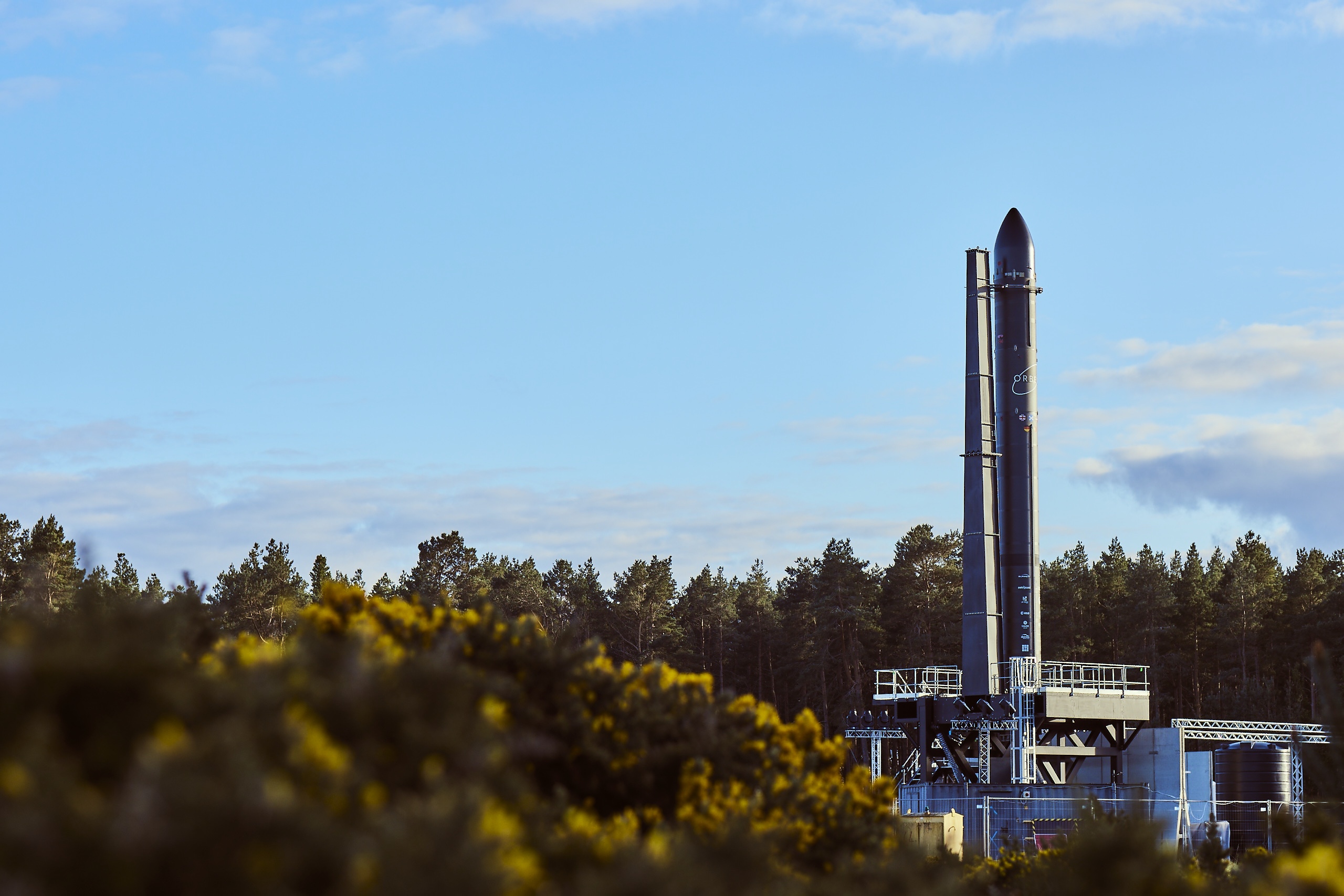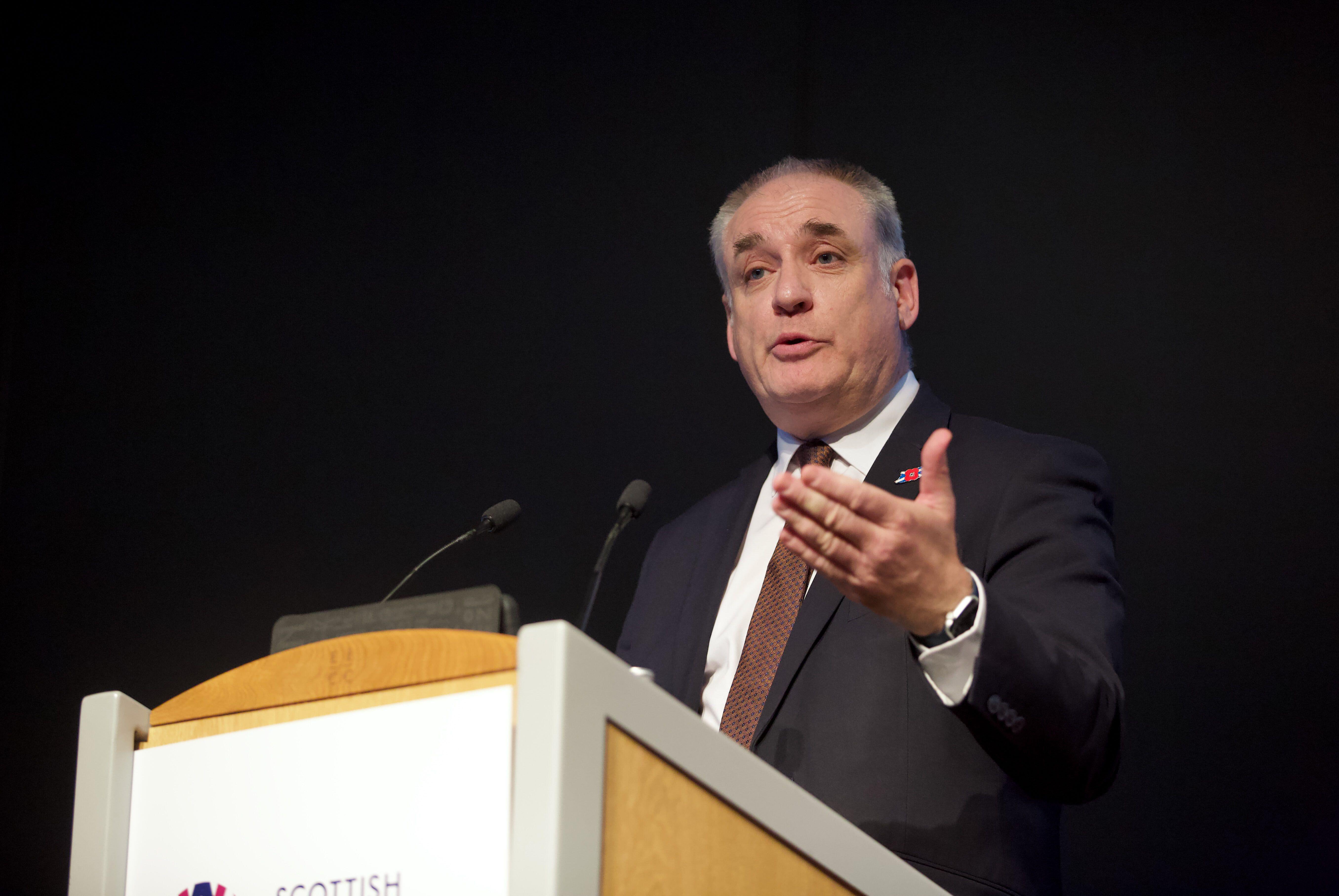Richard Lochhead: 'We are at a pivotal moment in Scotland's economic history'
As Scotland prepares for its first space launch in the coming months, the excitement on Richard Lochhead’s face is obvious.
Having been so close to the inner workings of the Scottish Government for the vast majority of the SNP’s 17 years in power, the Minister for Small Business, Innovation, Tourism and Trade admits he has had his “eyes opened” to the “transformational” technologies emerging in Scotland since taking on the portfolio 10 months ago.
In the lift to the Scottish Government offices in the parliament, a member of his staff tells me “he doesn’t stop talking about space”. I sit down in his office, and he points to a golden model of a satellite sitting between us that he was gifted by the European Space Agency. It’s small, no larger than a mug of tea. He says, “the real one isn’t much bigger”.
Lochhead is quick to label the space industry as one of the “star attractions” in Scotland’s emerging technology sector.
He’s not wrong. Unique to most European countries, Scotland has a near-complete space ecosystem, producing the most satellites in the world aside from California, world-leading space data companies, and is now months away from having its first operational spaceport, with more on the way in the coming years.
It is an opportunity that Lochhead is “grabbing with both hands” as he sees a “really exciting opportunity” for the Scottish economy.

“It’s quite incredible to think in less than 10 years the manufacturing of satellites is now much more possible with the advancement of miniaturisation and standardisation, which has made things cheaper,” he says. “That has given Scotland the ability to compete in this industry.
“The industry has grown from two people in an office in Glasgow to now having 183 companies in the sector in Scotland employing 8,500 people, and in jobs paying usually two to three times the national average salary.”
While space is not a fully devolved area, Lochhead and the Scottish Government still have a big role to play. He is excited about the prospect of commercial launches in Scotland and the creation of 20,000 jobs as the value of the sector is expected to rise to £4bn in the next 10 years.
Those jobs will be spread across Scotland, rather than centred in larger urban areas.
“Yes, Glasgow is the centre of manufacturing small satellites, but the launch sites and all of the economic growth are in the Highlands and islands,” Lochhead says.
“I am convinced there will be growth in those areas and I think you’ll even see visitors going to witness the rockets, and that will help the local economy too.
“It’s a truly national industry, particularly in rural areas where we are talking about the creation of high-value jobs.”
Scotland’s progression in the space sector is a part of a wider innovation ecosystem, Lochhead tells me. He is looking at innovation in areas like photonics and imaging and how they will “cross-pollinate” with each other to boost the wider economy.
“It’s quite mind-blowing what is happening just now in our tech sectors, and when I meet with companies, I often find myself asking why more people don’t know about what they are doing. I am determined to support them to raise awareness of Scotland’s potential.
“Thankfully that’s beginning to happen.”
So far Lochhead has been true to his word in the short time he has held his brief. He has travelled to California and Bremen in recent months to champion the work that is under way in Scotland’s space sector, speaking to international companies, and he says “they are taken aback by what is happening in Scotland”.
At the European Space Expo last November in Bremen, he told delegates that Scotland would be “a force for good”.
“A lot of people have a very specific view of what space is all about, whereas it’s changing rapidly. There is space exploration and that’s what has commanded the headlines for decades since we put a man on the moon,” he says.
.jpg)
“But now it is about earth observation and supporting all industries from space in terms of collecting and using data. I am told that 50 per cent of the indicators that are used to measure climate change are from space. We need satellites to do that.
“We are talking about tens of thousands of small satellites in space.”
It is clear to me there is an environmental lens on Scotland’s role in the sector, and that is what Lochhead means when he says it will be “a force for good”.
Getting satellites into low Earth orbit must be done with the environment in mind – there’s no two ways about that for Lochhead. He mentions that Scotland is the first country in the world to develop a sustainable roadmap for space, which he says is attracting a lot of international attention.
There is already a push being made by parts of the space industry to act more sustainably. Orbex, which will operate launches from the Sutherland spaceport, has developed the world’s most environmentally friendly rocket, which uses a biofuel 90 per cent lower in greenhouse gas factors than a fossil-based fuel, such as the highly refined forms of kerosene that are typically used as rocket fuel. The spaceport aims to be the first carbon-neutral site in the world.
The drive to make Scotland a world leader in small satellites has been made abundantly clear by Lochhead throughout our conversation. It’s that drive and potential that has led to predictions of Scotland becoming the space capital of Europe in the future.

Lochhead thinks that is “potentially achievable”, considering the country’s space ecosystem. But he knows that “other countries want to do the same”.
“In some areas, we are ahead of the game, but clearly we are not there yet and we are very hopeful we will see big steps forward in 2024, including launches beginning this year,” he says.
At the beginning of January, the deputy chief executive of SaxaVord, Scott Hammond, who plans to launch Scotland’s first rocket this year, told the Scottish Affairs Committee at Westminster that gaining licences from the Marine Directorate to deposit launch materials in the sea was taking six months when they say it should only be taking 14 weeks. I ask Lochhead how concerning hold-ups are if we are to deem 2024 a success.
“We are doing a lot of work with our agencies to make sure we can reduce the times for licences both for offshore renewables, but of course for the space industry as well,” he responds.
“Anything we can do to expedite development, we are doing. The Scottish Government has got right behind the space industry, I receive a lot of feedback from companies about how well supported they have been by Scottish Enterprise, Scottish Development International, and the Scottish National Investment Bank.
“There are many ways we can help the industry, but clearly a lot of areas are still reserved for the UK. We all remember the headline from the Scotland Act about how space was reserved, but economic development isn’t, and we are using every power we have got to help the industry.”
Hammond also told the committee that he felt there are “too many cooks” when asked if the Scottish and UK Governments have the right strategies in place.
Lochhead says he is “all ears” on what more the Scottish Government “can do to support the industry and improve”.
He tells me that while he has had discussions with UK officials and space regulator Colin Macleod over the last few months, he is still pursuing meetings with UK space minister Andrew Griffith, who recently mistook Mars for the Sun on a visit to the Science Museum in London.
“I am still looking for a face-to-face meeting, while there has been correspondence in the last few months,” he says.
“I’m very keen on further discussions with the UK Government on its views and contribution to international governance of space and on space debris, which poses a risk of congested orbits. With tens of thousands of small satellites going to be in low earth orbit in the years ahead, it is really important that we have sustainable policies in place and also that the governance is right.
“I’m very keen to understand the UK’s views on that and what role they are playing, as well as the regulation they are responsible for to get the spaceports up and running.”
Despite a slump in the world venture capital market, global investment in space is “showing strong signs”, Lochhead says. However, according to the space index report from Seraphim Space, the world’s first listed fund focused on space technology, investment has fallen significantly in the UK, sliding by 24 per cent during 2023, while the number of deals fell by almost a third compared with the previous year. But there were no specific break-out numbers for Scotland, where the main flurry of activity has been in recent years.
Lochhead tells me this is another issue he “is keen to discuss with the UK Government” and says that in Scotland “we are seeing increasing investment” but he notes that the space industry will not be immune to high interest rates and inflation.
“I am keen to learn more about that, but Scotland is going in the right direction,” he says. “We have had some significant inward investment projects announced and that shows that Scotland is an attractive location for the growing space industry.”
Over the last 10 months, he has “been giving a lot of thinking” to what Scotland’s role is within the areas of innovation and understanding where Scotland’s strengths are.

“There are so many points of light,” he says with an excited tone, adding that this is despite “damaging UK economic policy” alongside inflation and the cost of doing business.
Artificial intelligence (AI) is one of the areas that Lochhead emphasises, telling me Scotland “leads internationally” in some aspects of the technology, with world experts in our universities and spin-out companies born from that.
“We have a number of companies in the tech sector that are being spoken about as future unicorns. And I think we are at quite a pivotal moment in Scotland’s economic history,” he explains.
“I think a lot about how we are using 20th century processes for what is now the 21st century and a fast, fast-changing global economy, in particular those exponential changes in technology.”
Lochhead seems aware of the challenges of having growing tech companies, particularly keeping operations in Scotland past a certain point of growth. He notes we are world-renowned for our invention but that “we let other countries get the benefit from that”. He wants to make sure that the benefit is felt in this country.
“That means that not only do we invent the future in Scotland, just how we invented much of the past and present, but that we capture the jobs and the manufacturing,” he says.
“One crucial issue that has rocketed up the agenda in the last few years is how do we get to a position where we prevent our start-up companies that hit that £20-30m sweet spot from being bought up by big multinationals.
“We have seen Scottish Enterprise focusing its new plan on supporting the energy transition, scaling up, and attracting capital investment. There is a much greater focus on addressing the challenge of scaling up in Scotland.”
I end our conversation on a lighter note. He seems to have learned a great deal about the tech sector in a short space of time, and I want to know what new technology he is using to make his job easier.
“I use ChatGPT, it’s great for flagging up issues that you may not have thought about when researching a topic,” he says. “I certainly don’t have my speeches written by AI, but it is an incredible tool that everyone should be using. It’s the co-pilot that you use to support what you are doing.”
Holyrood Newsletters
Holyrood provides comprehensive coverage of Scottish politics, offering award-winning reporting and analysis: Subscribe